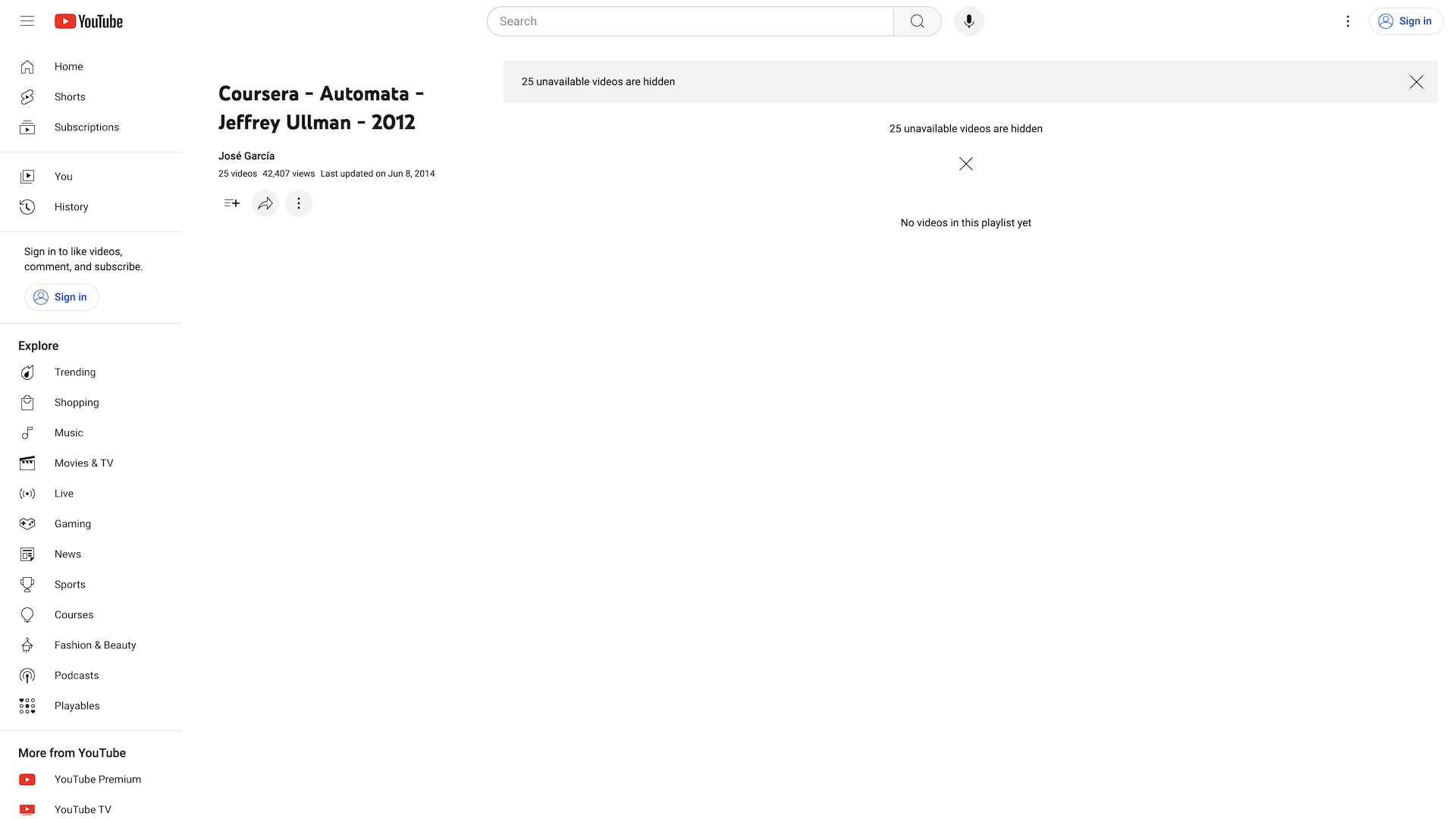Automata Theory | Computer Science Fundamentals | Coursera
Explore the foundations of computer science with this comprehensive course on automata theory, taught by renowned professor Jeffrey Ullman on Coursera.
Introduction
This course covers the fundamentals of automata theory, which is the foundation of computer science. It explores the different types of automata, including finite state machines, pushdown automata, and Turing machines, and their applications in language recognition and decision problems.

Highlights
- Comprehensive coverage of automata theory, including finite state machines, pushdown automata, and Turing machines
- Taught by renowned computer science professor Jeffrey Ullman
- Offered through the prestigious Coursera platform
- Hands-on exercises and programming assignments to reinforce the concepts
Recommendation
This course is highly recommended for anyone interested in computer science, algorithms, and the theoretical foundations of computation. It is especially valuable for students, software engineers, and researchers who want to deepen their understanding of the core principles of computer science.
YouTube Videos
How GetVM Works
Learn by Doing from Your Browser Sidebar

Access from Browser Sidebar
Simply install the browser extension and click to launch GetVM directly from your sidebar.

Select Your Playground
Choose your OS, IDE, or app from our playground library and launch it instantly.

Learn and Practice Side-by-Side
Practice within the VM while following tutorials or videos side-by-side. Save your work with Pro for easy continuity.
Explore Similar Hands-on Tutorials
CS50 Labs | Computer Science Fundamentals | Harvard University
1Compiler Design in C (1990)
1Compiler Design: Theory, Tools, and Examples, C/C++ Edition
2Compiler Design: Theory, Tools, and Examples, Java Edition
11Crafting Interpreters | Programming Language Design & Implementation
10EXPL NITC: Build your own Compiler
6Introduction to Compilers and Language Design
5Let's Build a Compiler | Compiler Design | Programming Language Implementation
22Basic Computer Architecture
5Discover categories